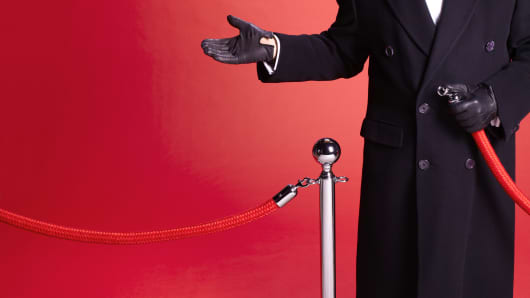But the stock still generally commands a premium in the market.
Sure, the price gets whacked from day to day. It's getting a pounding at this writing following a disappointing earnings report. But is it getting whacked as much as it should?
Take a look at Amazon's price-earnings ratio, the typical Wall Street formula for estimating a stock's value relative to other stocks. It's 194 for the year ahead. That means an investor is willing to pay $194 for every dollar of earnings the company is expected to deliver over the next year. That's pretty darn high. The forward-looking P/E for the market in general usually hangs around 17. As of this writing for the S&P 500 it's 16.1.
Read MoreWhat the P/E ratio is about
Now high P/Es aren't unusual for some outfits, usually high-tech companies where there's the promise (hope?) of a big payoff down the road. They are taken as an indication that investors expect growth to kick in sometime in the future. GoPro, for example, has a forward P/E of 76.3.
"Investors have been giving this company a pass for 20 years," said Carol Roth, author of The Entrepreneur Equation on CNBC's "Closing Bell" Thursday. "Is it now potentially an activist situation. Are we going to hear that Amazon needs to get their act together? We need to see that you can actually make money as a company."
So how does Amazon merit that kind of growth hope? Sure, it always seems to be trying, or at least imitating, new initiatives in tech with varying success. And perhaps it's being rewarded for a leadership position in what's boiling down to a winner-take-all e-commerce market (although it's worth keeping an eye on Alibaba, with a forward PE of 39.5).
And, yes, it's a child of the Internet. But it's not a child anymore. By cyber years, it's pretty long in the tooth, in fact. And its financial track record profit-wise is, well, kind of like a grocer.
By the way, Kroger's forward PE? 16.4.



